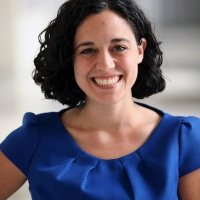Great Lakes Policy Forum| Land Tenure, Conflict, and Marginalization: New Analysis and Responses in Uganda
The Takeaways
Land Tenure, Conflict and Marginalization: New Analysis and Responses in Uganda
Rapid population growth and commercial investments are transforming rural Uganda, where 85% of citizens rely on access to productive land for their livelihood. Access to justice in land-related matters is largely out of reach, particularly for the most marginalized groups.
To address some of these issues, Search for Common Ground (SFCG) and the Africa Program of the Wilson Center hosted a discussion on the changing dynamics of land tenure and access to justice in Uganda. The discussion featured Albert Gomez Mugumya and Jennifer Ober of USAID’s Supporting Access to Justice, Fostering Equity and Peace (SAFE) Program in Uganda. The SAFE Program is implemented by the National Center for State Courts (NCSC) and SFCG, in partnership with local non-governmental organizations and community groups in 20 of the most conflict-affected districts of Uganda.
The panelists discussed key land-related issues including:
o Land tenure: 80% of the land is customary land, 20% is communal land. While some people think communal land should be broken up into freehold estate, other have raised concerns that women, youth and other disadvantage groups may lose out when format title is given.
o Population growth and population movement: Rapid population growth leads to increase in demand for land, conflict of inheritance and land disputes between clans. In areas previously affected by LRA violence, the return of peace has resulted in the return of former land owners who had fled, resulted in conflict with settlers.
o Creation of new districts: The creation of new districts has led to resources being stretched and districts curved on an ethnic basis leading to boundary conflicts and ethnic tensions.
o Oil: The discovery of oil, while creating hope for economic growth, has created new tensions over land ownership, compensation, land loss, environment damage.
o Access to justice: There is an important backlog of land-related cases in the court. Traditional institutions that handle customary land disputes are also overwhelmed because they are more accessible to the local population.
Panelists then highlighted how the SAFE program is responding to some of these issues, through, among others:
o Community sensitization programs in communities on land tenure systems and land rights;
o Capacity building and partnerships with traditional leaders to promote alternative dispute resolution mechanisms and conflict sensitive leadership;
o Empowerment of community legal volunteers to bring services nearer to the communities to enable them to access justice; and
o Public sensitization on land rights through mass media.
During the Q&A sessions, participants highlighted the importance of key principles such as the demand for sustainability by the beneficiaries, which SAFE addresses through an empowerment of local actors’ approach, and the need for strengthened coordination between government and other agencies, which SAFE responds to by collaborating with a variety of stakeholders, including government agencies.
The forum was well attended including the acknowledged presence of the Ambassador of the Republic of Uganda to the United States, H.E. Oliver Wonekha and representatives from civil society, various governments and international institutions.
Speakers

Hosted By

Africa Program
The Africa Program works to address the most critical issues facing Africa and US-Africa relations, build mutually beneficial US-Africa relations, and enhance knowledge and understanding about Africa in the United States. The Program achieves its mission through in-depth research and analyses, public discussion, working groups, and briefings that bring together policymakers, practitioners, and subject matter experts to analyze and offer practical options for tackling key challenges in Africa and in US-Africa relations. Read more
